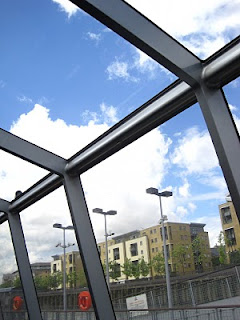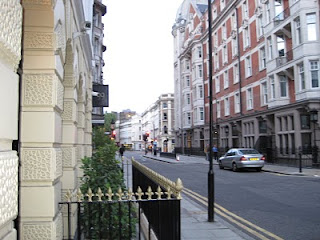 Cliched but true!
Cliched but true!The night before I left London I viewed my final musical in the city that never sleeps--Wicked. What a way to end a wonderful visit! The musical exceeded my expectations; the powerful relationship between Glinda and the Wicked Witch of the West moved me to tears. I was also surprised to discover that I enjoyed the dialogue more than the songs (and I am particularly fond of "No One Mourns the Wicked," "Popular," and "Defying Gravity"). Erika: I agree with you one hundred percent!
After three weeks in London though, I have to admit that I was more than ready to return home. Immersing myself in the English culture was an enriching experience, and one that I won't forget! However, as Dorothy states in "The Wizard of Oz," 'there's no place like home.'
It's funny how quickly the human body can adapt to new circumstances. Stepping off the plane in Orlando, I felt a jolt of shock at the hot and humid atmosphere. I miss the cool summer weather of England already!

Time really seemed to retard to a painfully slow crawl on the flight home, and the drive from Orlando to Largo felt like four hours rather than two. Yet here I am, readjusting to U.S. time and spending quality time with my friends, family, and pets. I am so, so happy to finally be home. Yet all the same...
I am already planning my next trip to England!
There is no question of whether or not I will return to England. I can't see myself NOT making the trip back to this exciting country. I definitely want to re-visit some of the places where I felt rushed (e.g. Stonehenge, Salisbury, Bath, etc.). And I most definitely will make another stop at the British Museum--what a fabulous place! With the costs associated with travel, however, I don't know how soon I'll be able to make that excursion. In the mean time, I will simply reflect on my experiences with fondness... and remember how exciting it was to embrace the differences!




















